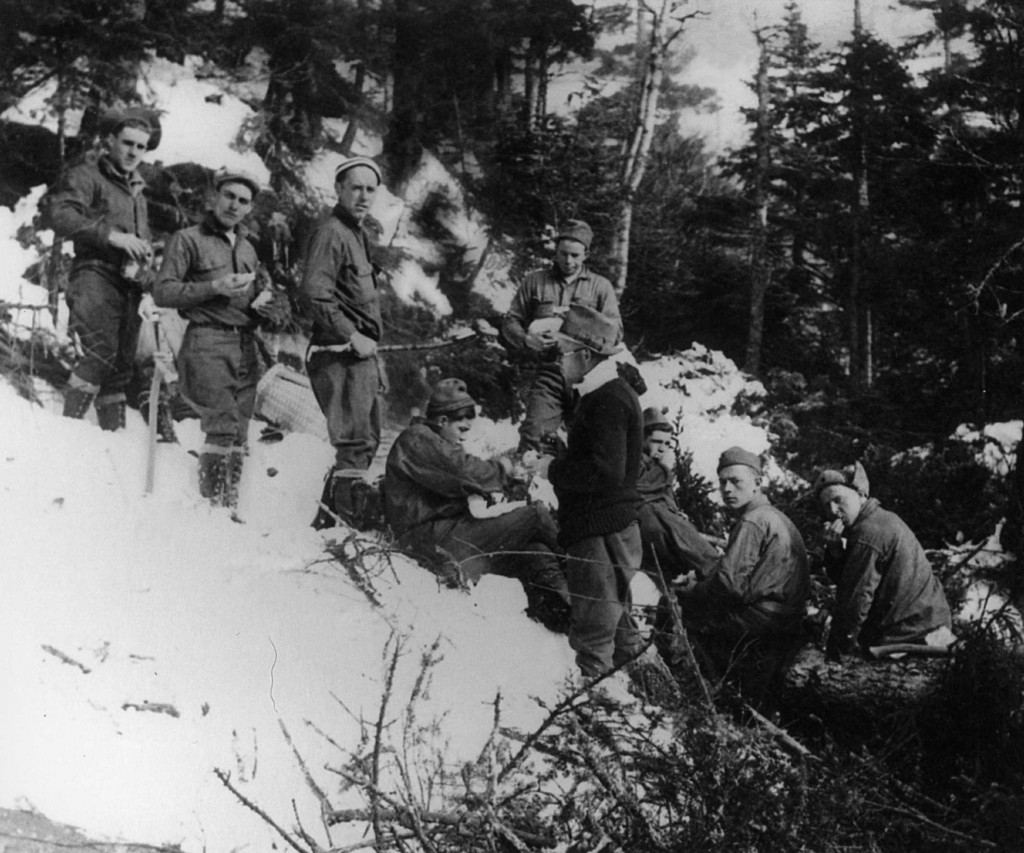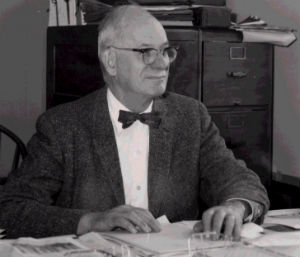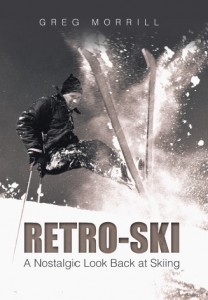At least once every ski season when I’m skiing the gondola, I hear somebody say “Let’s take Perry Merrill, whoever that was?” The wording may be slightly different, but the meaning is the same. If they are unlucky enough to be riding up the gondola with me when they say it, they find out more about Perry Merrill than they wanted to know!
Perry Merrill was born in Westport, New York in 1894. He went to Syracuse University where he received a degree in Forestry. Following college he served as an ambulance driver in WW I from 1917-19.
From a 1987 VPR interview with Perry Merrill, it sounds like his interest in skiing began at an early age. Back in Westport he fashioned some homemade skis from barrel staves with bindings made from leather horse reins. However his more serious skiing interest came from a 1920 fellowship he received to spend a year at the Royal College of Forestry in Stockholm, Sweden. As part of his work there he used skis for both touring and downhill. Or as he put it, for both work and pleasure.
Upon his return to the United States he took a job as a District Forester in Vermont. By 1924 he received his Master’s degree in Forestry from Yale and had been promoted to Assistant State Forester for Vermont.
In 1930 Perry Merrill became the Vermont State Forester. That was during the Great Depression and when Franklin Roosevelt instituted the “New Deal,” Merrill saw an opportunity. One of the programs was the Civilian Conservation Corps or the CCC for short. The federal government would provide funds and workers to do projects for the public good. Each state was allotted a number of “camps,” each staffed by 200 workers. Vermont’s initial allotment was three camps and Perry Merrill was put in charge.

Merrill identified projects on state land to build parks and of course, cut ski trails! The first camp was located in Waterbury and the projects included cutting ski trails on Mount Mansfield. The other two initial camps were located at Burke and Jay Peak. The workers were paid $1 a day with food and clothing provided.
Perry Merrill discovered that not all states were using their allotment of camps and so by visiting the right people in Washington DC, he could secure more camps for Vermont. He would eventually acquire 20 camps for Vermont. These would add locations at Ascutney and Okemo plus others. In addition to ski trails, state park facilities were built for camping and picnicking, and 150 roads were built. The CCC program would run until 1942 when funding was cut off.
Charlie Lord was put in charge of the Mount Mansfield project. The first trail cut was the Bruce in 1933, then the Nosedive and Chin Clip in 1934, followed by the Perry Merrill trail in 1937. The original Perry Merrill and Chin Clip trails were not located where they are today. When the first gondola was added in 1968, new trails were cut and the names reassigned.
As lift-served skiing emerged, Perry Merrill stayed involved. On Mount Mansfield he was part of the team that laid out the original single chair location. He also was instrumental in developing the lease terms for ski areas on state land. While those leases have been tweaked and modified and certainly criticized, they still are based on the model Merrill established.
In the 1950s Merrill played a key role in the development of Killington. When Preston Smith was looking for a mountain to develop, it was Merrill who recommended Killington Mountain. There were a couple of major obstacles: Smith had no money and there was no road access to the proposed area. Pres Smith went searching for potential investors while Perry Merrill began lobbying the Vermont Legislature to build an access road. Both were successful and Killington would become the largest ski area in New England.
Perry Merrill retired in 1966. He would then write a series of books ranging from Vermont history to the history of the CCC to Vermont skiing. He passed away in 1993 at the age of 99! The Rutland Herald ranked Perry Merrill third in its list of the most influential Vermonters of the 20th century.


March 18, 2024 at 2:04 pm
great article, Greg…love the local history regarding trail development